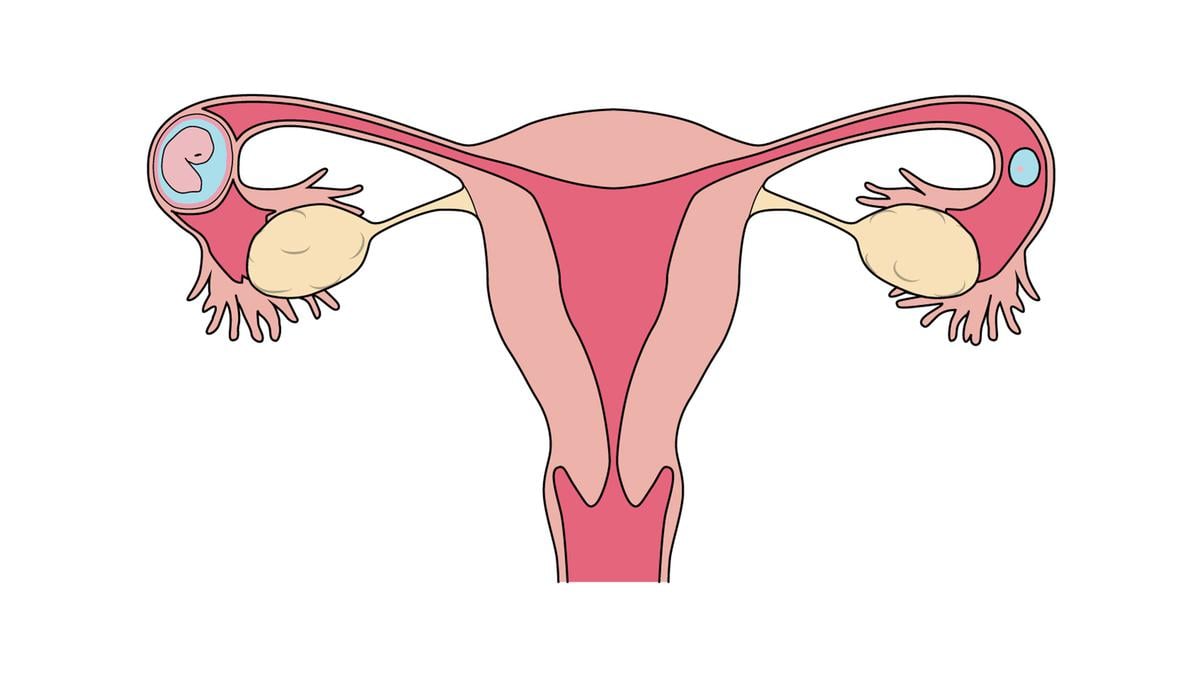Ectopic Pregnancy: Symptoms, Causes & Treatment
What are the symptoms of ectopic pregnancy?
Ectopic pregnancy, also known as extrauterine pregnancy, occurs when a fertilized egg implants and grows outside the main cavity of the uterus, most commonly in the fallopian tube. The symptoms of ectopic pregnancy can vary, but common signs and symptoms may include:
- Abdominal Pain: Pelvic or abdominal pain is a common symptom of ectopic pregnancy. The pain may be mild, severe, sharp, or cramp-like and may occur on one side of the abdomen.
- Vaginal Bleeding: Vaginal bleeding, which may be lighter or heavier than a typical menstrual period, is another common symptom of ectopic pregnancy. The bleeding may be continuous or intermittent.
- Shoulder Pain: In some cases of ectopic pregnancy, the fallopian tube may rupture, causing internal bleeding. This can result in referred pain to the shoulder area.
- Weakness, Dizziness, or Fainting: Internal bleeding from a ruptured ectopic pregnancy can lead to symptoms such as weakness, dizziness, or fainting.
- Rectal Pressure: Some women with ectopic pregnancy may experience pressure in the rectum or a sensation of needing to have a bowel movement.
- Urinary Symptoms: Ectopic pregnancy may cause urinary symptoms, such as increased frequency or urgency of urination.
- Gastrointestinal Symptoms: Some women with ectopic pregnancy may experience gastrointestinal symptoms, such as nausea, vomiting, diarrhea, or constipation.
It’s important to note that the symptoms of ectopic pregnancy can be similar to those of other gynecological conditions, such as miscarriage or pelvic inflammatory disease. If you experience symptoms of ectopic pregnancy, especially if you have a history of ectopic pregnancy or pelvic inflammatory disease, it’s important to seek medical attention from your healthcare provider promptly. Ectopic pregnancy is a serious condition that requires immediate medical treatment to prevent complications such as rupture of the fallopian tube and severe bleeding.
What are the causes of ectopic pregnancy?
Ectopic pregnancy occurs when a fertilized egg implants and grows outside the main cavity of the uterus, most commonly in the fallopian tube. The exact cause of ectopic pregnancy is not always known, but several factors may increase the risk of developing an ectopic pregnancy. Some common causes and risk factors for ectopic pregnancy include:
- Damage to the Fallopian Tubes: Damage to the fallopian tubes can prevent the fertilized egg from moving into the uterus, leading to implantation in the fallopian tube. This damage can result from previous ectopic pregnancy, pelvic inflammatory disease (PID), endometriosis, or surgery on the fallopian tubes.
- Hormonal Factors: Hormonal factors, such as abnormal levels of progesterone or estrogen, can affect the movement of the fertilized egg through the fallopian tube and into the uterus, increasing the risk of ectopic pregnancy.
- Previous Ectopic Pregnancy: Women who have had an ectopic pregnancy in the past are at increased risk of having another ectopic pregnancy.
- Pelvic Inflammatory Disease (PID): PID is an infection of the female reproductive organs, often caused by sexually transmitted infections (STIs) such as chlamydia or gonorrhea. PID can cause scarring and damage to the fallopian tubes, increasing the risk of ectopic pregnancy.
- Inflammation or Scarring of the Pelvic Organs: Inflammation or scarring of the pelvic organs, such as the fallopian tubes, ovaries, or uterus, can interfere with the normal movement of the fertilized egg, increasing the risk of ectopic pregnancy.
- Smoking: Smoking tobacco has been associated with an increased risk of ectopic pregnancy.
- Use of Assisted Reproductive Technology (ART): Women who undergo procedures such as in vitro fertilization (IVF) or other assisted reproductive technologies may be at increased risk of ectopic pregnancy.
- Age: Women over the age of 35 may be at increased risk of ectopic pregnancy.
It’s important to note that in many cases, the exact cause of ectopic pregnancy is unknown, and it may occur in women with no known risk factors. Early diagnosis and treatment of ectopic pregnancy are essential to prevent complications such as rupture of the fallopian tube and severe bleeding.
What is the treatment for ectopic pregnancy?
The treatment for ectopic pregnancy depends on several factors, including the location and size of the ectopic pregnancy, the presence of symptoms, and the overall health of the patient. Treatment options for ectopic pregnancy may include:
- Expectant Management: In some cases, particularly if the ectopic pregnancy is small and the patient is stable, a healthcare provider may recommend expectant management, which involves monitoring the pregnancy closely with blood tests and ultrasound scans to ensure that it resolves on its own.
- Medication: A medication called methotrexate may be used to treat ectopic pregnancy, especially if the pregnancy is detected early and the fallopian tube has not ruptured. Methotrexate works by stopping the growth of the pregnancy tissue. This treatment option is typically used in cases where the ectopic pregnancy is small, the patient is stable, and there is no evidence of rupture.
- Surgery: Surgery may be necessary to remove the ectopic pregnancy if it is large, the fallopian tube has ruptured, or other complications are present. The surgical procedure, known as a laparotomy or laparoscopy, involves making a small incision in the abdomen to access the fallopian tube and remove the ectopic pregnancy. In some cases, the affected fallopian tube may need to be removed (salpingectomy).
- Monitoring: After treatment for ectopic pregnancy, it is important for the patient to be monitored closely by a healthcare provider to ensure that the ectopic pregnancy has been successfully treated and to watch for any signs of complications.
It’s important to seek prompt medical attention if you experience symptoms of ectopic pregnancy, such as abdominal pain, vaginal bleeding, or shoulder pain. Ectopic pregnancy is a serious condition that requires medical treatment to prevent complications such as rupture of the fallopian tube and severe bleeding. Early diagnosis and treatment can help improve outcomes for affected individuals.




